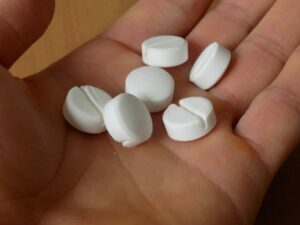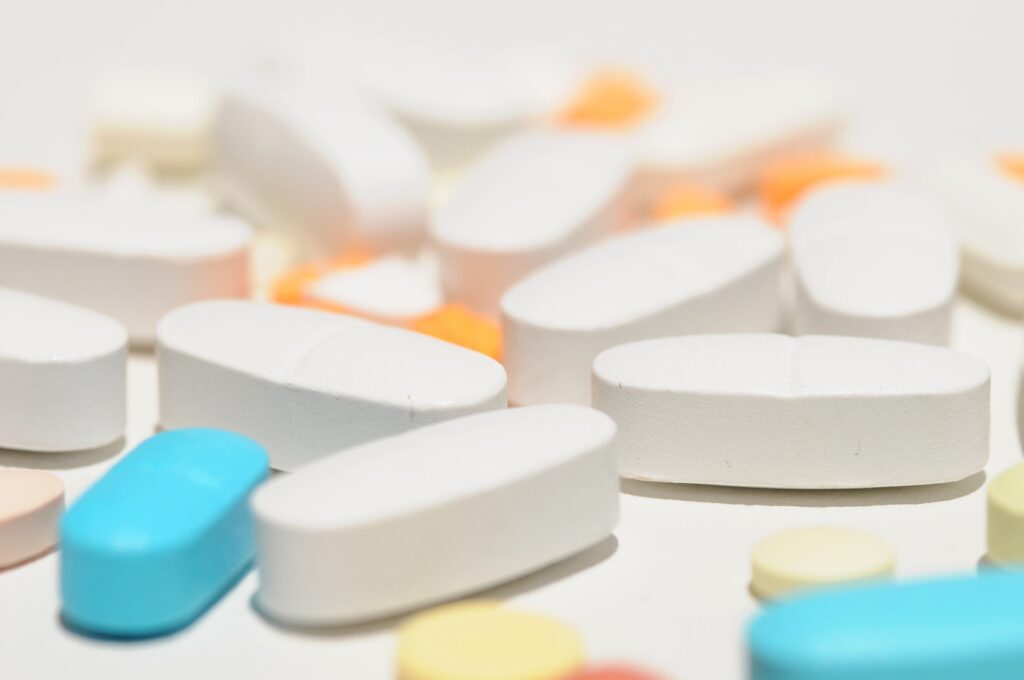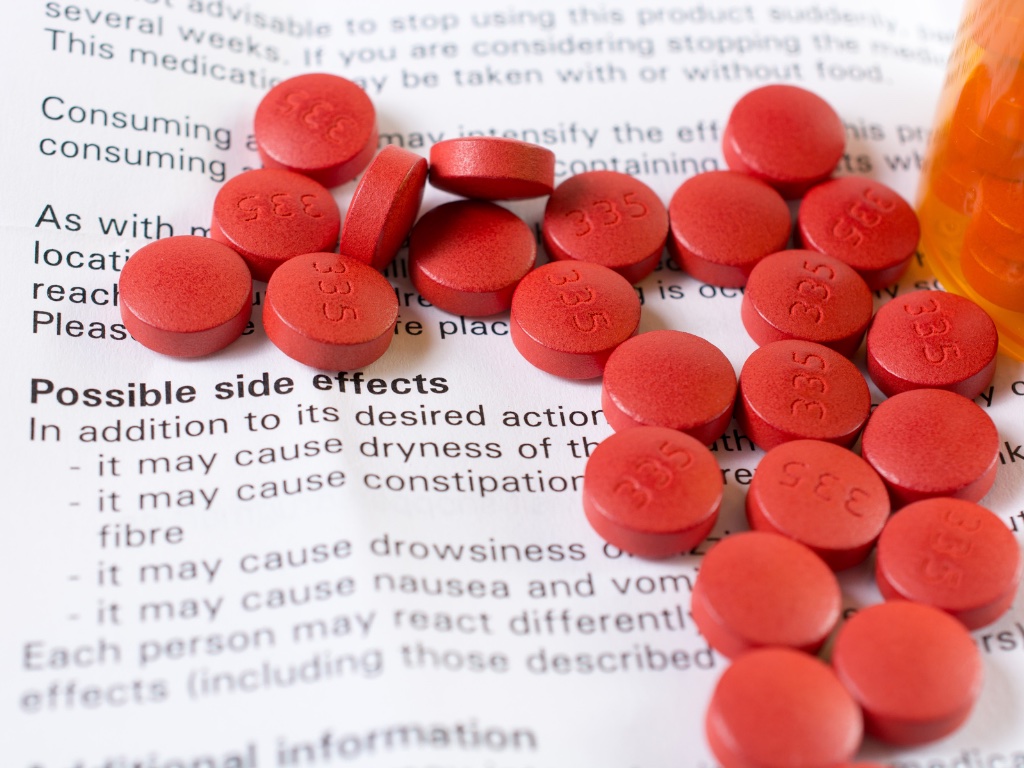Attention Deficit Hyperactivity Disorder, or ADHD, is a neurological disorder that affects millions of people worldwide. Sufferers have difficulty controlling their attention and hyperactivity. Stimulants are one of the most common treatments for ADHD and can help to improve focus, concentration, and behavior. This comprehensive guide covers different stimulants and their benefits.
Contents
What Are Stimulants?

Stimulants are drugs that increase activity in the brain. They are often prescribed to people with ADHD to help them focus and stay organized.
There are many types of stimulants, but the most common are methylphenidate (Ritalin) and amphetamine (Adderall). Methylphenidate is usually more effective than amphetamine, but they both work.
Several other drugs can also be used to treat ADHD, including atomoxetine (Strattera), clonidine (Catapres), guanfacine (Intuniv), and modafinil (Provigil). However, these drugs have different effects and may not be as effective as methylphenidate or amphetamine.
Types of Stimulants
There are many different types of stimulants, each with its benefits and drawbacks. This comprehensive guide will discuss the different types of stimulants, their benefits and drawbacks, and how to choose the best one for your needs.
When trying to decide between stimulants for ADHD, it is important to remember that there are many different types of stimulants with different benefits and drawbacks. This comprehensive guide will discuss the different types of stimulants, their benefits and drawbacks, and how to choose the best one for your needs.
Some of these types of stimulants include:
Nicotine: Nicotine is the most common stimulant used to treat ADHD. It has several benefits, including that it has a low risk of addiction and is effective in treating ADHD. However, nicotine also comes with several drawbacks, including that it can be habit-forming and cause nicotine dependence.
Caffeine: Caffeine is another popular stimulant used to treat ADHD. It has many benefits, including that it is effective in treating ADHD and can help improve energy levels. However, caffeine also comes with a few drawbacks, including that it can be addictive and cause tolerance over time.
Methamphetamine: Methamphetamine is a highly addictive stimulant that has been known to cause significant harm both physically and mentally. It should not be used by anyone without a doctor’s supervision.
Acetaminophen: Acetaminophen (paracetamol) is a commonly used pain reliever and fever reducer. It is not typically thought of as a stimulant, but it can have mild stimulant effects when taken in high doses. This also makes it a good option for people who are reluctant to use stimulants due to possible side effects.
How Do Stimulants Work?

There are many different types of stimulants, each with its mechanism of action. They all can increase brain activity and improve symptoms of ADHD. Stimulants can be divided into two main groups: those that act as monoamines (such as dopamine and norepinephrine), and those that work by activating the central nervous system (CNS) in a more general way.
Monoamine stimulants work by increasing levels of these neurotransmitters in the brain. This can help to improve symptoms such as focus, motivation, and hyperactivity. Monoamine stimulants are commonly prescribed for ADHD, as they are more effective than other treatments.
Stimulants that work through the CNS include methylphenidate ( Concerta ), amphetamine (Adderall), dextroamphetamine (Dexedrine), and methamphetamine (Metamfetamine). These drugs activate receptors in the brain, which leads to increased activity and improved symptoms. They are typically more effective than monoamine stimulants at treating ADHD, but they also have more side effects and require a higher dosage to be effective.
Stimulants that act as monoamines include lisdexamfetamine (Vyvanse), Atomoxetine (Strattera), and Modafinil (Provigil). These drugs work similarly to monoamine stimulants, but they are not as effective at treating ADHD and have a shorter duration of action.
Side Effects of Stimulants For ADHD
There are a variety of stimulants that are used to treat ADHD. However, like any medication, they can have side effects. Some of the most common side effects of stimulants for ADHD include:
Increased Anxiety and Irritability.
One of the most common side effects of stimulants for ADHD is that they can increase anxiety and irritability. This is because stimulants work by increasing the levels of dopamine and norepinephrine in the brain. These neurotransmitters are associated with feelings of excitement and energy. When these levels are high, it can lead to increased anxiety and irritability.
Increased Appetite
Another side effect of stimulants for ADHD is that they can increase appetite. This is because stimulants work by increasing the levels of dopamine and norepinephrine in the brain. These neurotransmitters are associated with feelings of hunger and pleasure. When these levels are high, it can lead to an increased hunger for food.
Weight Gain
One of the most common side effects of stimulants for ADHD is that they can lead to weight gain. This is because stimulants work by increasing the levels of dopamine and norepinephrine in the brain. These neurotransmitters are associated with feelings of pleasure and satisfaction. When these levels are high, it can lead to an increased desire for food.
Nausea and Vomiting
Nausea and vomiting are also common side effects of stimulants for ADHD. This is because stimulants work by stimulating the production of stomach acids. When these acids are produced in high amounts, it can lead to nausea and vomiting.
Insomnia
Another common side effect of stimulants for ADHD is that they can lead to insomnia. This is because stimulants work by increasing the levels of dopamine and norepinephrine in the brain. These neurotransmitters are associated with feelings of energy and wakefulness. When these levels are high, it can lead to difficulty sleeping.
Tremors and Twitches
Sometimes there are also side effects that are called tremors and twitches. These side effects are often seen in people who take stimulants for ADHD. Tremors and twitches can occur because stimulants increase the levels of dopamine and norepinephrine in the brain. These neurotransmitters are associated with muscle movements. When these levels are high, it can lead to muscle twitches or tremblings.
Precautions To Taking WhIle Taking Stimulants for ADHD

When you are considering whether or not to take stimulants for ADHD, there are a few things you should keep in mind. Here are some precautions to take when taking stimulants:
1. Always consult with your doctor before starting any new treatment plan, including stimulants for ADHD. There are several potential side effects associated with stimulant medications, and your doctor will be able to weigh the risks and benefits of using them in your specific case.
2. Be mindful of how much stimulant medication you take. Too much can lead to adverse effects, so it is important to start with a low dose and increase it gradually as needed. If you experience any adverse effects while taking stimulants, such as increased anxiety or agitation, please contact your doctor immediately.
3. Avoid using stimulants if you are pregnant or breastfeeding. These medications can potentially harm the developing baby, and they may also cause problems for breastfeeding mothers if the drugs reach their milk. Talk to your doctor about whether or not these medications are right for you before taking them.
4. Be aware of the signs and symptoms that indicate you should stop taking your stimulant medication. These include feeling excessively agitated or anxious, experiencing rapidly uncontrolled movements, or having a change in your mood or personality. If you notice any of these signs and symptoms, it is important to contact your doctor as soon as possible.
Conclusion
If you or someone you know is struggling with ADHD, it can be difficult to find the right medication and/or supplements. This comprehensive guide will help you understand the different types of stimulants and which ones might be best suited for your needs. Whether you are looking for a short-term fix or long-term treatment, this guide has everything you need to make an informed decision.
Hope this article was of help to you! If you are suffering from mental health disorders, you may seek help from Therapy Mantra. We have a team of highly trained and experienced therapists who can provide you with the tools and skills necessary for overcoming mental health disorders. Contact us today to schedule an online therapy or download our free Android or iOS app for more information.


